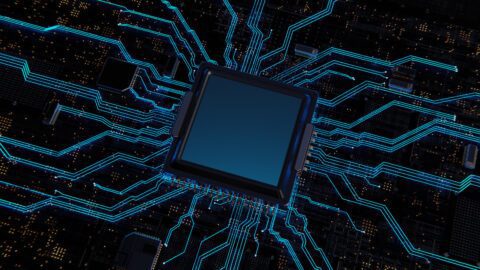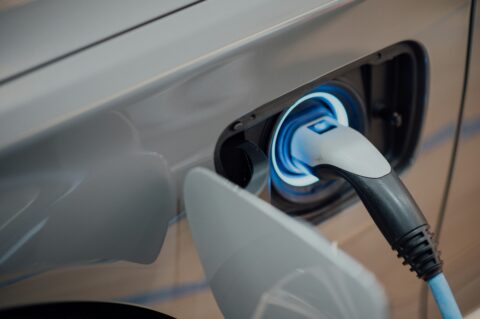Introduction to the Evolution of Electronics
The world of electronics is constantly evolving, with new innovations and advancements being made at an astonishing rate. From the first bulky televisions to sleek smartphones and high-tech appliances, we have come a long way in a relatively short period of time. But what does the future hold for electronic appliances? What can we expect in the coming years? In this blog post, we will explore the current trends in electronics appliances, delve into the advancements in smart technology, discuss the rise of sustainable and eco-friendly appliances, examine their potential impact on industry and consumers, and make predictions for the exciting future that lies ahead. So fasten your seatbelts and get ready to be amazed by what’s on the horizon!
Current Trends in Electronics Appliances
Current Trends in Electronics Appliances
The world of electronics appliances is constantly evolving, and there are several exciting trends that are shaping the industry today. One major trend is the integration of smart technology into everyday devices. From refrigerators to thermostats, appliances are becoming more connected than ever before.
With smart appliances, homeowners can control their devices remotely using a smartphone or voice assistant. This level of convenience allows for greater flexibility and efficiency in managing household tasks. Imagine being able to preheat your oven on your way home from work or checking if you need to restock your refrigerator while at the grocery store.
Another notable trend in electronics appliances is the focus on sustainability and eco-friendliness. As consumers become more conscious of their environmental impact, manufacturers are developing products that consume less energy and reduce waste.
Energy-efficient washing machines, solar-powered water heaters, and recyclable materials used in construction are just a few examples of how companies are incorporating sustainable practices into appliance design.
Furthermore, advancements in technology have led to improved functionality within these appliances. For instance, dishwashers now come with sensors that detect dirt levels on dishes and adjust water usage accordingly. Smart air conditioning units use weather forecasts to optimize energy consumption based on temperature fluctuations throughout the day.
In addition to enhanced functionality, aesthetics play a significant role too. Consumers no longer want bulky eyesores taking up space in their homes; instead they seek sleek designs that seamlessly blend with their interior decor.
As we continue down this path towards progress, it’s clear that innovation will remain at the forefront of electronic appliance development. With every passing year comes new breakthroughs – whether it’s faster processors for smarter devices or greener solutions for a more sustainable future.
In short: stay tuned! The future promises even more extraordinary possibilities for electronics appliances as we embrace advancements in smart technology and prioritize sustainability like never before
Advancements in Smart Technology
Advancements in Smart Technology
Smart technology has revolutionized the way we live our lives, and its impact on electronics appliances is no exception. From smartphones to smart TVs, these devices have become an integral part of our daily routines. But what does the future hold for smart technology in the world of electronics appliances?
One significant advancement we can expect is increased connectivity. With the advent of 5G networks and improved internet speeds, appliances will be able to communicate with each other seamlessly. Imagine a refrigerator that can automatically order groceries when it detects that you’re running low, or a washing machine that knows exactly how much detergent to use based on your laundry load.
Another area where we’ll see advancements is artificial intelligence (AI). Appliances will become smarter and more intuitive, learning from our habits and preferences to provide personalized experiences. Picture a coffee maker that knows just how you like your morning brew or an air conditioner that adjusts itself based on your preferred temperature settings.
Voice control will also play a significant role in the future of smart technology. Virtual assistants like Amazon’s Alexa or Google Assistant are already integrated into various devices, but their capabilities will expand even further. You’ll be able to control your entire home using voice commands alone – dimming lights, adjusting thermostats, or even starting your dishwasher.
Moreover, as sustainability becomes increasingly important for consumers and manufacturers alike, smart technology will contribute to energy efficiency efforts. Appliances equipped with sensors can optimize power consumption by detecting usage patterns and turning off when not needed.
Advancements in smart technology offer endless possibilities for electronics appliances. Increased connectivity brings convenience at our fingertips while AI ensures personalized experiences tailored to our needs and preferences. Voice control simplifies everyday tasks while promoting hands-free operation. And let’s not forget about sustainability – smart devices help us reduce energy waste without sacrificing functionality or comfort.
The future holds exciting developments in this field – only time will tell what wonders lie ahead!
The Rise of Sustainable and Eco-Friendly Appliances
The Rise of Sustainable and Eco-Friendly Appliances
As the world becomes more conscious about environmental issues, the demand for sustainable and eco-friendly appliances is on the rise. Consumers are now actively seeking out products that minimize their carbon footprint and reduce energy consumption.
One major trend in this area is the development of energy-efficient appliances. Manufacturers are focusing on creating products that use less electricity without compromising performance. From refrigerators to air conditioners, these appliances are designed to save both energy and money in the long run.
Another aspect of sustainability in electronics is the use of recyclable materials. Companies are making efforts to incorporate recycled plastic, metals, and other components into their appliance designs. This not only reduces waste but also helps conserve natural resources.
Additionally, there has been an increase in smart appliances that optimize resource usage. For example, smart thermostats can learn users’ habits and adjust temperature settings accordingly, resulting in significant energy savings over time.
Furthermore, many companies have started implementing renewable energy options within their appliances such as solar panels or wind turbines. This allows homeowners to generate clean power for their electronic devices while reducing reliance on traditional fossil fuel-based electricity sources.
The rise of sustainable and eco-friendly appliances reflects a growing global awareness towards preserving our planet’s resources. As technology continues to advance, we can expect even more innovative solutions that promote sustainability while maintaining convenience for consumers.
Potential Impact on the Industry and Consumers
Potential Impact on the Industry and Consumers
The potential impact of the future of electronics appliances is immense, both for the industry and consumers. As technology continues to advance at a rapid pace, we can expect to see major changes in how electronic appliances are designed, manufactured, and used.
From an industry perspective, these advancements will likely lead to increased competition as companies strive to develop innovative products that meet consumer demands. This could result in a wider range of options available to consumers, with appliances becoming more customizable and tailored to individual needs.
In addition, the integration of smart technology into appliances will revolutionize how we interact with our devices. Imagine being able to control your entire home’s electronic ecosystem from your smartphone or voice-controlled device! This level of convenience and connectivity has the potential to greatly enhance our daily lives.
On the consumer front, there may also be financial benefits associated with these advancements. With energy efficiency being a key focus for many manufacturers, we can expect future electronics appliances to consume less power while delivering optimal performance. This not only helps reduce utility bills but also contributes towards a greener planet by reducing carbon emissions.
Moreover, sustainability is becoming increasingly important for both industries and consumers alike. In response to growing concerns about environmental impact, appliance manufacturers are likely to prioritize eco-friendly design principles in their products. This means using sustainable materials during manufacturing processes and creating appliances that have minimal negative effects on the environment throughout their lifecycle.
As we look towards the future of electronics appliances it becomes clear that there are exciting times ahead. The industry will continue pushing boundaries through technological innovations while meeting consumer demand for convenience and sustainability simultaneously. It is up to us as consumers to embrace these changes and make choices that align with our values – whether it be supporting companies committed to eco-friendly practices or investing in smart technology that enhances our daily lives.
Predictions for the Future of Electronics Appliances
Predictions for the Future of Electronics Appliances
As we look ahead to the future, it is clear that electronics appliances will continue to evolve and improve in exciting ways. Here are some predictions for what we can expect in the coming years:
1. Integration with Artificial Intelligence (AI): With advancements in AI technology, electronics appliances will become even smarter and more intuitive. Imagine a refrigerator that automatically orders groceries when you run out or a washing machine that knows how to clean different types of fabrics without any input from you.
2. Increased Connectivity: The internet of things (IoT) will play a significant role in the future of electronics appliances. We can expect seamless connectivity between various devices, allowing them to work together efficiently and provide us with personalized experiences.
3. Energy Efficiency: As sustainability becomes increasingly important, electronic appliances will focus on energy efficiency. This means lower electricity consumption, reduced environmental impact, and cost savings for consumers.
4. Enhanced User Experience: Manufacturers will prioritize user-friendly interfaces and intuitive controls for their products. Expect touchscreens, voice commands, gesture recognition, and other innovative interaction methods becoming commonplace.
5. Advanced Materials: The materials used in electronics appliances will continue to advance as well. From stronger metals to flexible displays made from organic compounds or nanotechnology, these advancements will enable more durable and versatile products.
6. Health Monitoring Features: In the near future, our electronic devices may be able to monitor our health by tracking vital signs such as heart rate or blood pressure while we use them regularly—making it easier than ever before to maintain a healthy lifestyle.
7. Personalization Options: Consumers crave personalization options across all aspects of their lives—and this applies to electronics appliances too! Expect customizable settings tailored specifically towards individual preferences becoming more prevalent.
8.
Technological Convergence: Electronics appliances may merge with other technologies such as robotics or augmented reality (AR), creating unique experiences beyond what we can currently imagine.
These predictions paint a picture of an exciting future for electronics appliances. While we cannot







